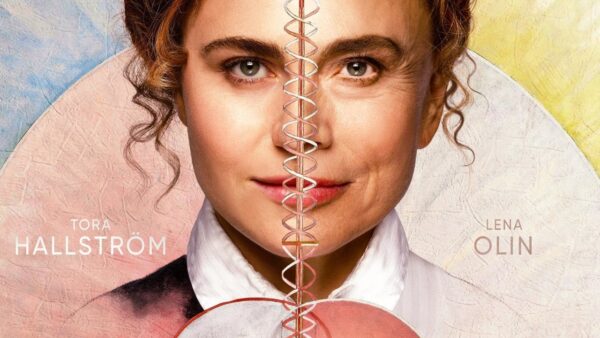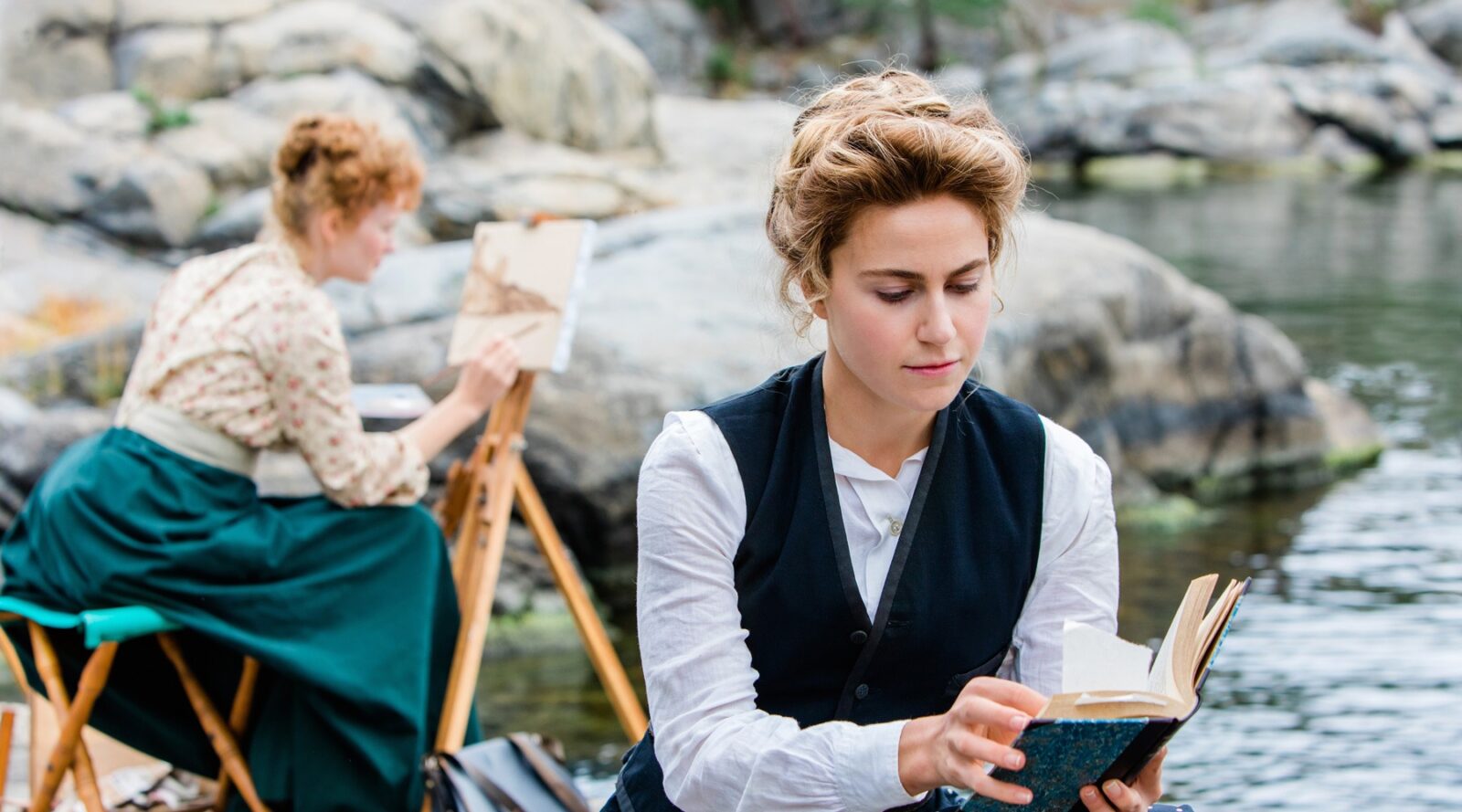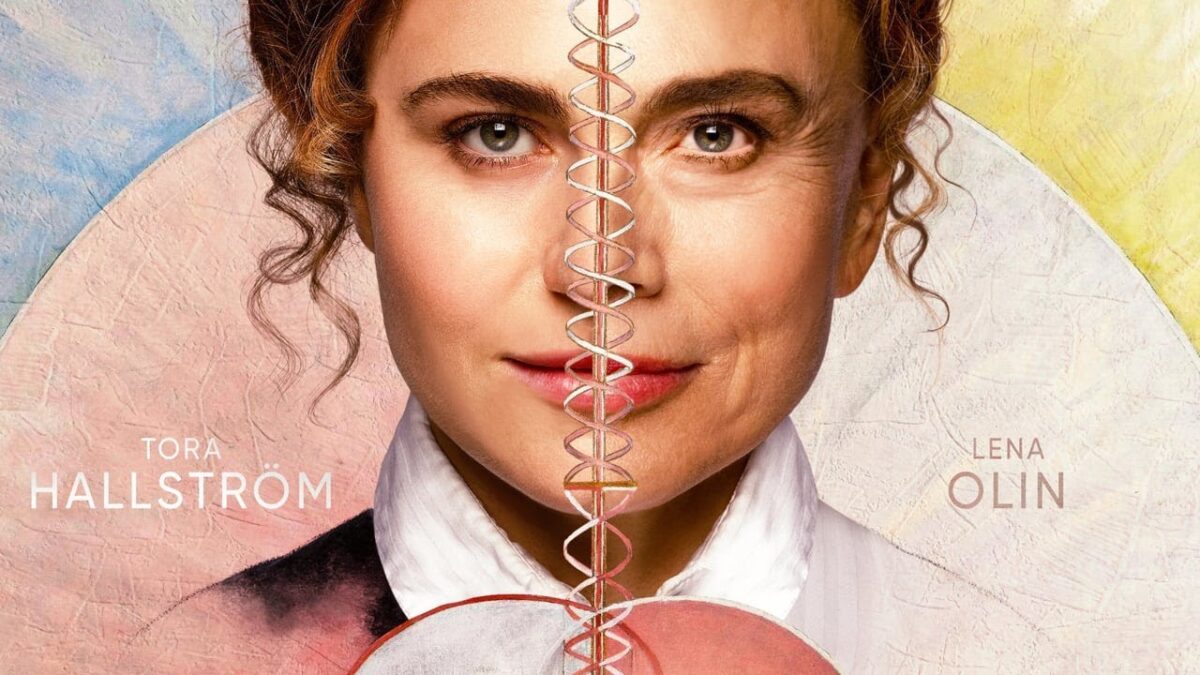
COLOR IS THE SOUL OF NATURE IN THE UNIVERSE, AND DUE TO COLORS, WE RECEIVED MESSAGES FROM THE SOUL…
Hilma af Klint is a mystery that director Lasse Hallström spent several years trying to understand. He made a biopic about her art and her quest for the truth regarding humanity and the universe at a time when men set all the rules (end of XIX Century to mid-XX Century).
Hilma af Klint is a Swedish artist that posthumously revolutionized the art world as the pioneer of abstract artists, and lived in times of denial for women’s capacities and abilities in society.
On the other side of the spectrum, there were Edvard Munch and particularly Vassily Kandinski, her contemporary artists, as males, they were admired and received recognition; for a woman in those days, the motifs in paint were limited to portraits and flowers, abstraction was inconceivable. Time has allowed us to acknowledge her creativity due to her extremely high sensibility, her motivation and to appreciate her body of work and see her as “the mother” of Modernism.
The film is beautifully shot as usual in Hallström´s filmography, a conventional narrative with few sequences of special effects as waves of inspiration. We are introduced to a mature Hilma (Lena Olin) in 1944 Stockholm, and then there is a flashback to 1880 Adelsö to young Hilma (gifted Tora Hallström) who has a strong bond and a playful relationship with her younger sister Herminia (Emmi Tjernstrom). Hilma was born into a family of scientists, her grandfather measured the depths at the sea –bottoming out literally and figurative is a recurrent image in the story-. Hilma, with her impetuous soul, wants to study the world to see how things are connected, and she wants to make a map of everything and use art as a tool in her research. Her mother tells her to find a husband instead of going to art school, since her grandfather gave her a noble name but unfortunately, money didn’t come with it. Doing her art, Hilma has the complicity of Anna Cassel (Catherine Chalk) and a group of enthusiastic female friends.
 As I mentioned before, at the end of the XIX Century world was ruled by men, even at the faculty, The Swedish Academy of Art, the women´s entrance was in the back. Hilma´s concerns collided with the mentality of the epoch that considered her talent was not important at all. She was misunderstood, and even children named her a witch. She and her friends made a publication about Spiritism with texts and illustrations on their own. Later, in the creative process of the abstract paintings, enjoyable to watch, the collaboration between Hilma and her pals had a festive vibe, in their gatherings they share women´s connections to spiritual energies men don´t understand.
As I mentioned before, at the end of the XIX Century world was ruled by men, even at the faculty, The Swedish Academy of Art, the women´s entrance was in the back. Hilma´s concerns collided with the mentality of the epoch that considered her talent was not important at all. She was misunderstood, and even children named her a witch. She and her friends made a publication about Spiritism with texts and illustrations on their own. Later, in the creative process of the abstract paintings, enjoyable to watch, the collaboration between Hilma and her pals had a festive vibe, in their gatherings they share women´s connections to spiritual energies men don´t understand.
Rudolph Steiner (Tom Wlaschiha), the Austrian philosopher, was an influence on Hilma, she called him her soul mate. During a first visit to Sweden, they met and he was introduced to her art, with consequences. There is intimacy between HIlma and Anna, who also is her benefactor, and these feelings evolve as the relationship itself.
Director Hallstrom remarks that due to Spiritism, HIlma received messages from beyond and saw things to paint that were invisible to the world. She immersed herself in a trance and painted, holding the brush or the crayon allowed her to connect to the divine, she felt she was a tool of the spirits. In this context, gender meant nothing, God creates the soul. As a result, she made big drawings and paintings in a selected palette of colors, each one a statement by itself. Art is eternal, its form changes. The film and Hilma invite us to consider: if you really get to know the world, look deeply into your soul, and to really get to know yourself, take an interest in the world.
Although there is something missing in the narrative, the movie allows us to discover an important artist in the history of the art of the XX Century. In 2019, more than 70 years after her death, Hilma af Klint received a well-deserved recognition, a solo show at the Guggenheim Museum, you may have a look at Paintings for the Future here.
PS HILMA is beeing screened at OUTshine Miami’s LGBTQ Film Festival
Review by José Mayorga , Guatemala, Central America lawyer and notary public, visual artist, and editor of El Azar Cultural, lives and works in Guatemala City. Cinema lover, curious about the possibilities life brings and eager to live the experience.
![]()
OUTshine Film Fest begins on 4/20 and will end on 4/30 To see the whole program and book tickets check out https://outshinefilm.com/
![]() for full reviews of over 1500 queer films check out www.queerguru.com and whilst you are there be sure to subscribe to get all the latest raves and rants on queer cinema …best of all its FREE
for full reviews of over 1500 queer films check out www.queerguru.com and whilst you are there be sure to subscribe to get all the latest raves and rants on queer cinema …best of all its FREE

